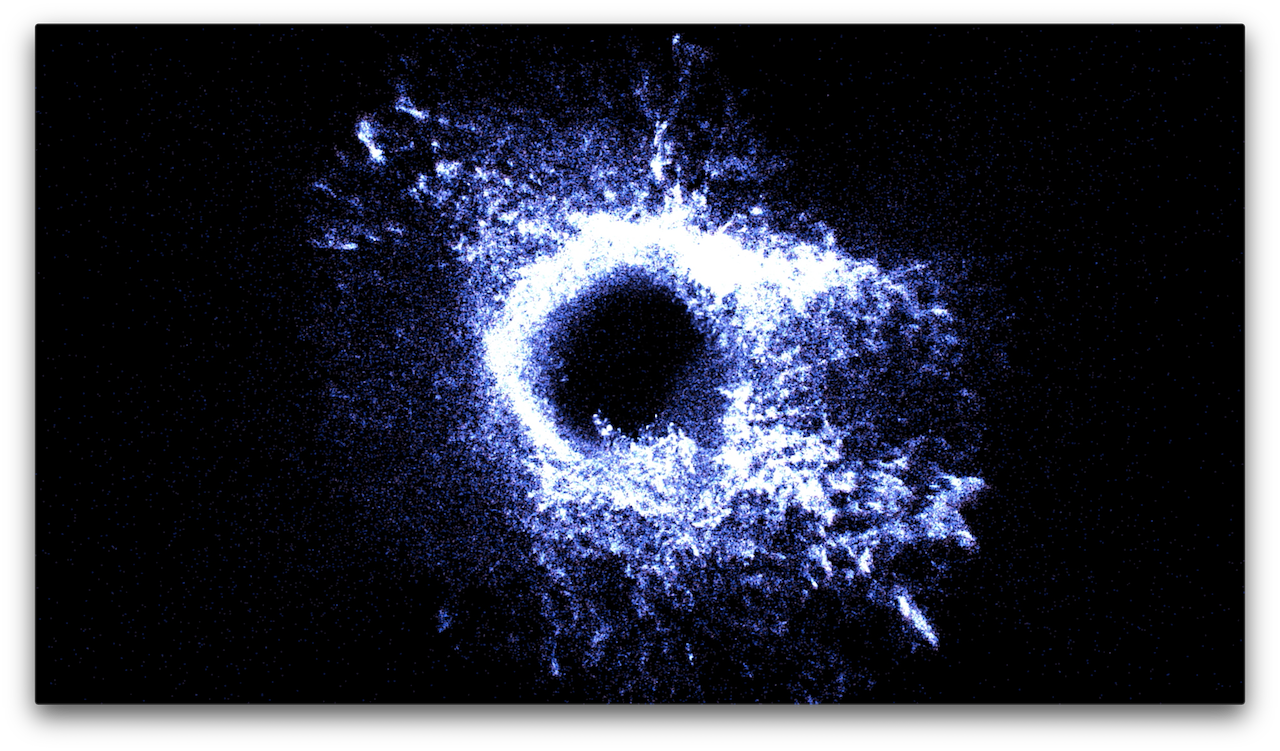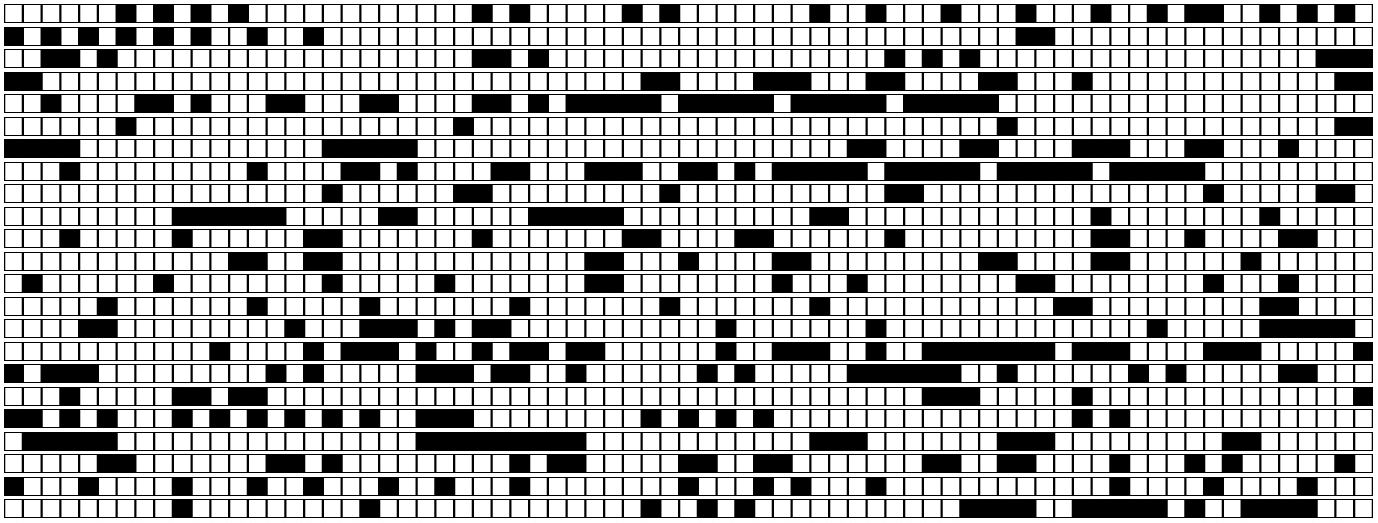BACK TO POSTS
Audio Rewire
A recurring need at fuse* is the ability to have a strong interaction between audio and video. The starting point is to have the possibility to have the audio signal inside the generative software (usually written in OpenFrameworks).
For this reason we have studied several possibilities to have audio rewire for OF environment available both for Mac OS and Windows 10.
First we created a base OF example to read multi-input audio channels.
MultiAudioInExample
MultiAudioInExample is an extension of audioInputExample (included in OF workspace) with the possibility to see more than 2 input audio channels.
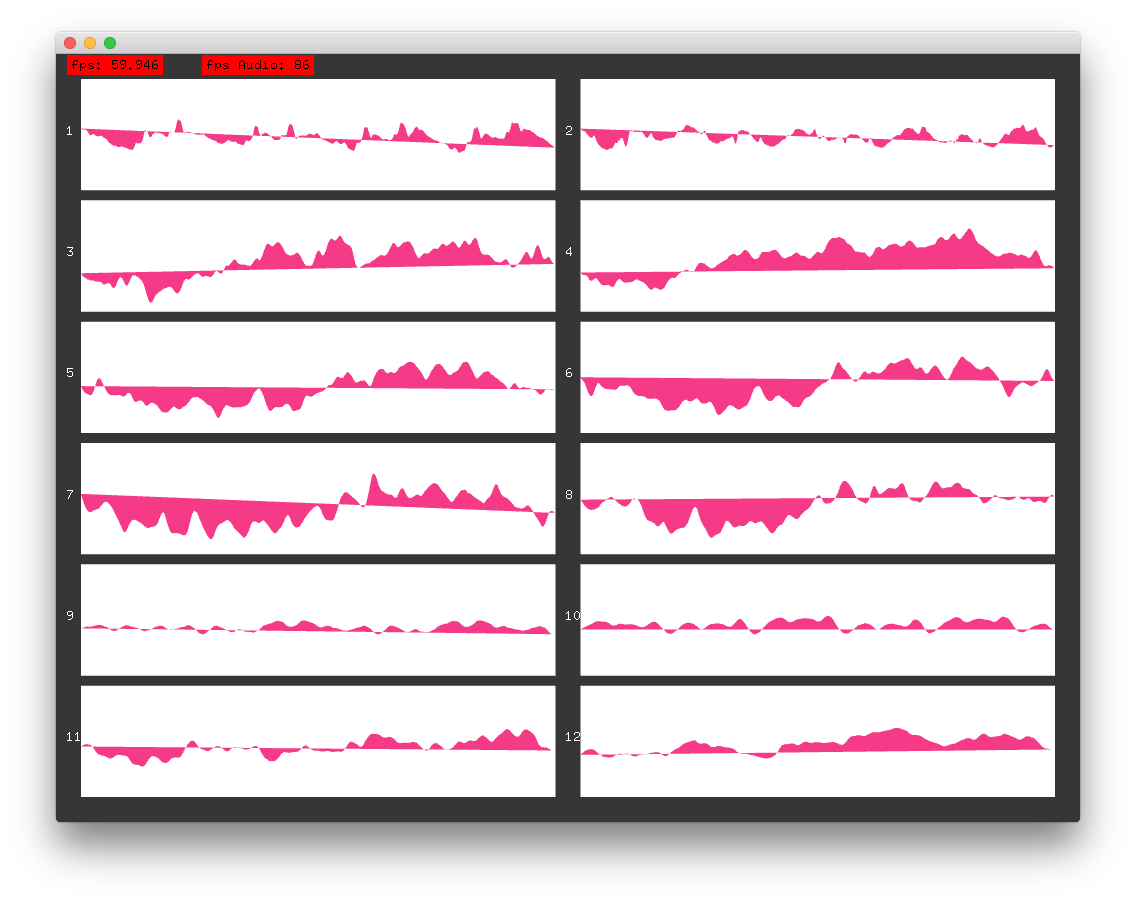
You can setup the number of input channels and the buffer size changing the const variables declared in ofApp.h
const int numChannels = 12;
const int bufferSize = 512;
and the other parameters of ofSoundStream
soundStream.setup(this, 0, numChannels, 44100, bufferSize, 4);
ofSoundStream, after setup, called the method audioIn using ofSoundBuffer
void ofApp::audioIn(ofSoundBuffer &inBuffer)
alternatively you can use the float buffer directly (now is commented). In my experience it’s more boring but it solved me an annoying vector error in Window 10 using audio jack.
void ofApp::audioIn(float * input, int bufferSize, int nChannels)
#Audio rewire
Software compatibility is something very frustrating. For this reason we divided software for compatibility, usually we work on MacBook Pro with Mac OS and our clients use Windows OS machine. So, from the bottom of my heart - I apologise to linux users (which I admire every day) - but I took into consideration only Mac OS and Windows.
Some other compatibility is available, but in this post we will only consider the combinations that we have personally tested.
Mac OS
Loopback
Loopback is the best ready to go software for Mac OS, the natural successor of SoundFlower.
| Pros | Cons |
|---|---|
| Easy to use and very easy configuration | It’s not free, you need to buy the licence |
| Continuous updates | It’s not open source |
| Autostart | Available only for Mac OS |
| Unlimited virtual channels (tested 12x channels) | Static routing audio (you cannot select each application) |
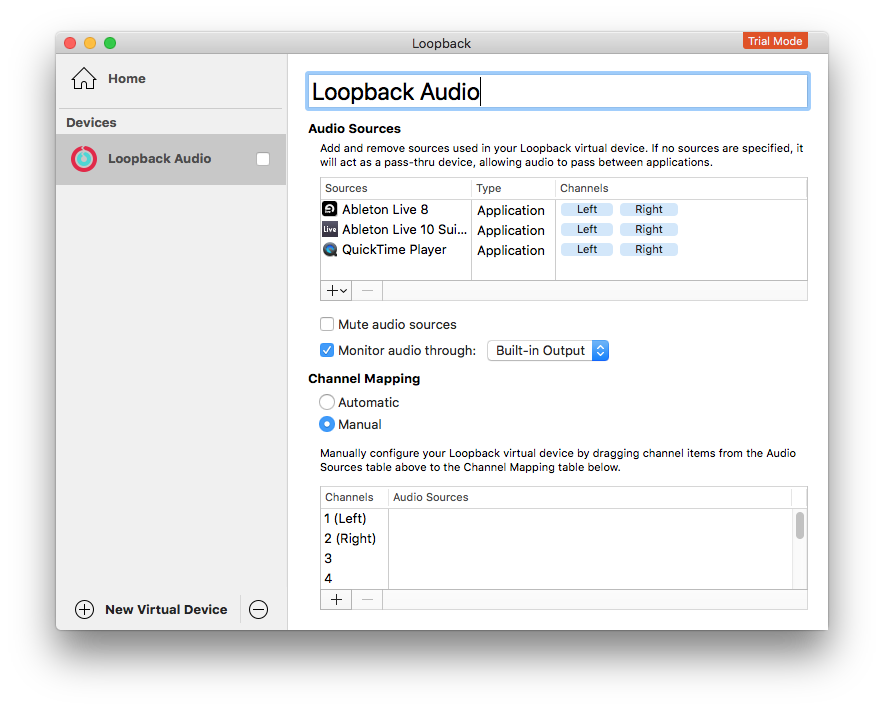
We use Loopback for our interactive show Dökk and we are very satisfied: you need just select Loopback as audio device and create virtual channels.
SoundFlower
We used often SoundFlower in the past, but now we use only Loopback. So I can’t explain if it is still available for the last Mac OS, but seeing the github repository it’s not updated from several years.
Windows
##Jack Audio##
JACK Audio is “a professional sound server daemon that provides real-time, low-latency connections for both audio and MIDI data between applications that implement its API”.
| Pros | Cons |
|---|---|
| Free | Not ready to go, but there is a useful FAQ for Windows |
| Open source | It doesn’t work with all audio software [1] [2] |
| Unlimited virtual channels (tested 12x channels) | |
| Very flexible routing audio for each application |
[1] JACK (in windows) works with PortAudio driver so audio application have to use that driver. In my experience JACK with ASIO4ALL, the sound was generated using Ableton Live 10.
[2] In Live 10 select Driver Type: ASIO4ALL, Audio Output Device: JackRouter.
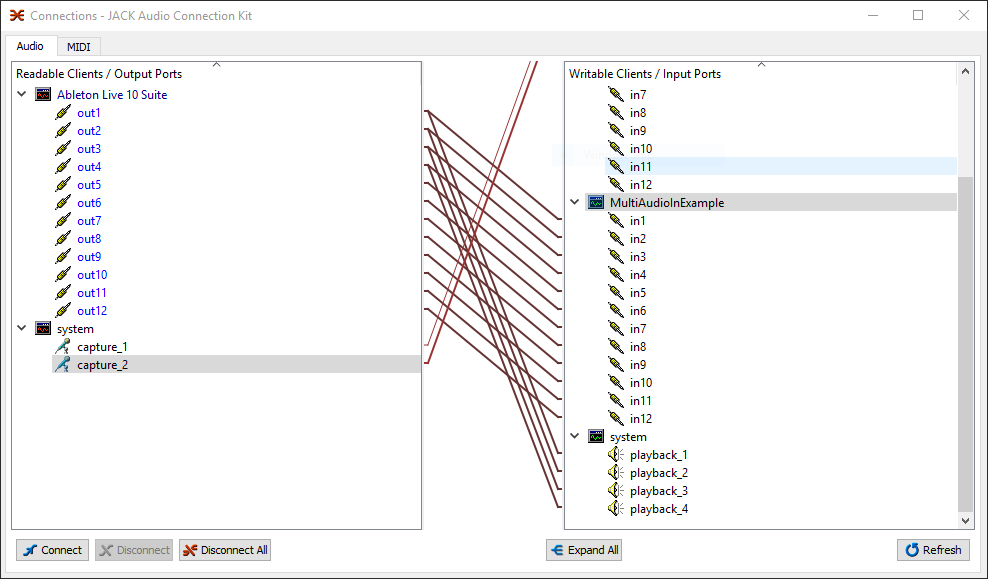
JACK with OpenFrameworks
I tested with success OF 0.9.8 in a Windows 10 machine using Visual Studio 2015. After started the OF app, you can see the name of application in the Jack Audio Connection Kit and you can connect (using mouse dragging) the Output to the Input. You can create persistent connection using PatchBay.
Dante Via
After numerous researches I finally found an alternative to Loopback for Windows, this is Danta Via.
| Pros | Cons |
|---|---|
| Easy to use and very easy configuration | It’s not free, you need to buy the licence |
| Available for Windows and Mac OS | It’s not open source |
| Very flexible route audio for each application | Limited to 16x16 channels |
| Possibility to route sound over network [3] |
[3] Very interesting, but I did not have the chance to test it.
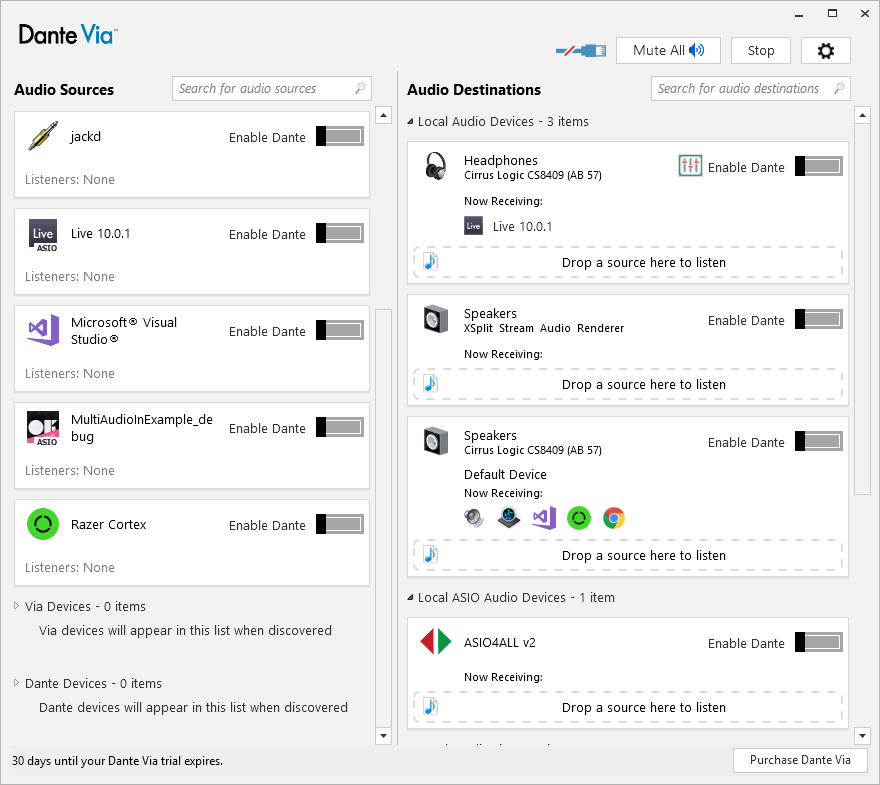
Audio Over network
An interesting research is send audio samples buffer over network. We tried through OSC messages between Max/MSP and OpenFrameworks, but we met several problems. If you have some suggestion or ideas, you are welcome!

